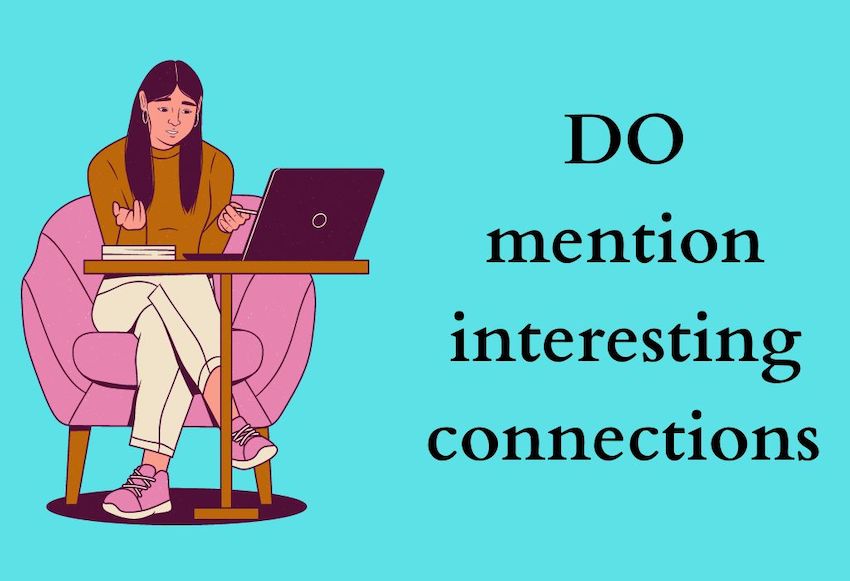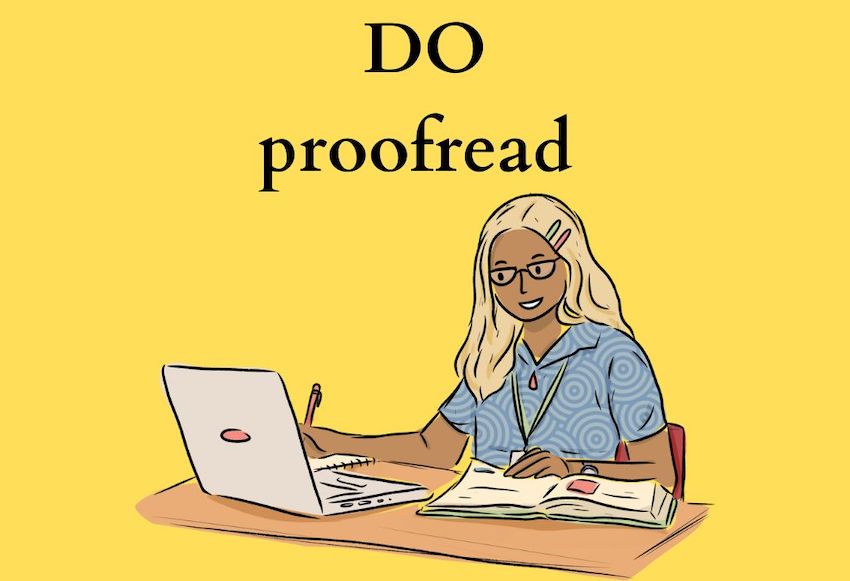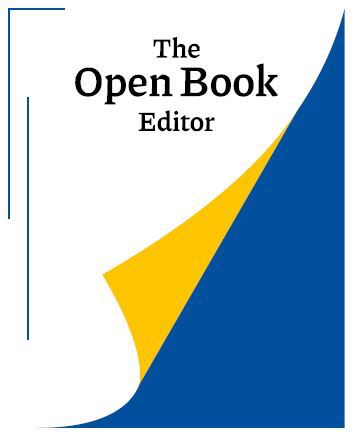Querying is always an exciting step in the writing journey. However, when submission season rolls around, it’s important to know the DOs and DON’Ts of querying your book before dropping your cover letters into your favourite agents’ inboxes. Obviously, the first big DO of querying your book is to make sure you are indeed ready to query. If you send your book out too soon, you risk instant rejection; wait too long and you may end up querying during the wrong time of year (or over-editing your book into oblivion).
Are you ready to take that exciting next step but not sure how to approach querying? Here are 6 major DOs and DON’Ts of querying your book.

1. DO study other successful query letters
It’s completely natural for querying to feel a little overwhelming. But if you want to get traditionally published, then you’ll have to pitch your book to agents at some point. Remember that thousands of writers have found representation this way! And with the right approach, you can, too.
One of the first DOs of querying your book is to study successful cover letters. You’ll probably notice similar structures, formats, and approaches. This is a good reminder that you don’t need to reinvent the wheel here and create a new style of query.
Read successful letters from the last few years so you can see if there are any changes in querying trends. Take notes on what grabs your attention and what makes each book marketable. Query Letter is a great place to start—you’ll find successful queries in a variety of genres, all in one place.
2. DON’T send the same email to every agent
Writing a great query letter can be time-consuming and stressful. Hence, it might be tempting to just copy and paste the exact same letter into your emails to the different agents. However, this is a huge DON’T when querying your book.
While there are essential parts of your cover letter that shouldn’t change (i.e., the elevator pitch and rundown of your book), there are other parts you need to customise for whoever you’re sending it to. This is why doing thorough research before querying is so important!
How should you personalise? Here are a few tips:
- Always have a reason to query an agent. Maybe they’ve made a post on social media asking for manuscripts similar to yours. Or perhaps they work with other clients in the same genre you write in and you think your book would be a great fit.
- In your query letter, dedicate one to two sentences to why you’ve chosen to send your query to this particular agent.
- At the very least, you should read an agent’s bio on their agency website so you know which genres they represent and what types of manuscripts they’re interested in seeing.

3. DO mention interesting connections to your book
It never hurts to have a personal tie to your book. For example, if you’ve written a climbing adventure novel and also climb mountains in your spare time, mention it in your query! Or if you’ve written a book set in another country and lived there at some point, you can briefly mention this, too.
A personal connection or experience with the subject matter can lend more heft to your pitch. However, don’t worry too much if you don’t have this; it’s not necessary for fiction and most agents won’t expect it.
If you’re writing non-fiction, this will be a bit trickier. Unless you are an expert or have significant life experience with the topic you’re writing about, it’s unlikely an agent will want to pick up your book for representation.
Also, keep in mind that non-fiction querying is different from fiction. In the non-fiction genre you’ll generally pitch your book before you write it. You’ll include a CV (or something similar) in your query package so potential agents can see what experience you have with the subject matter.
4. DON’T resort to gimmicks
There are a lot more aspiring authors out there than agents, which makes querying an incredibly competitive process. An average agent can receive around 100 submissions per week. This might make you think that an unconventional query letter is a good way to stand out from the slush pile. While it will, it’ll most likely be for the wrong reasons. A gimmicky pitch letter is one of the big DON’Ts of querying your book because it will usually work against you rather than in your favour.
Here are a few examples of gimmicks to avoid in your query letter:
- Writing your query from the perspective of one of your characters (stick to first-person for the personalised portion and third for your book’s blurb).
- Using an experimental format.
- A joke on every line.
- Inappropriate or click-baity subject lines (most agents will specify what you should put in the subject line when querying them; follow these instructions).
Why do you want to avoid gimmicks? Because they can be seen as cheap attention-seeking tactics that take focus away from your book—the very thing you’re trying to pitch! Even worse, a gimmicky query letter could get you sent straight to the spam folder or blocked altogether.

5. DO have your query letter proofread before sending
As mentioned above, agents are often overwhelmed by the enormous number of submissions they receive. This means that they have less time and energy to dedicate to looking over each one.
Your query is the hook that will convince agents to read your book. And you can be sure that agents will make snap judgements based solely on your query letter. How it’s written is just as important as the quality of your book. Typos, grammatical mistakes, or poor structure in your query letter are all reasons your book could end up in the reject pile. Therefore, you must make sure your query letter is as close to perfect as possible.
This can feel like a lot of pressure, but that’s why you should ask for help! Before querying your book, DO have other people read and critique your query letter. These can be members of your writing group, online beta readers, or even a professional book editor.
An author coach can also be immensely useful. Not only will an author coach help perfect your query letter, but they’ll provide advice and industry knowledge on editing, querying, and publishing your book, too. If this sounds like the kind of boost you need, contact us to learn more about our author coaching.
6. DON’T contact agents informally
Social media isn’t just an important marketing tool for writers. It’s also a great way to connect with agents, publishers, and other authors. Even so, informally reaching out to agents via social media is one of the major DON’Ts of querying. Whether it’s to send your query, ask query-related questions, or ‘nudge’ an agent who has your submission, sending unsolicited DMs is highly unprofessional. This doesn’t just make agents uncomfortable; it’s also a good way to get blacklisted or blocked.
Of course, there are always exceptions. Some agents may put up wishlists on their social media channels, call-outs for certain types of books, or invite authors to interact with them and discuss their books through social media. In these cases, it’s perfectly okay to respond and ask questions about sending your query (but only if you believe it matches what that agent is looking for).
The point is, you shouldn’t send queries or pitches to agents’ DMs unless they specifically invite you to do so. Usually, when agents post query requests on social media, they will include information on how to submit. ALWAYS follow the agent’s submission guidelines.

I’ve sent out my query letters. Now what?
Waiting to hear back from agents is probably one of the hardest parts of querying. Instead of refreshing your inbox non-stop, try to find other writing-related tasks to occupy your mind:
- Outline your next project.
- Set a few new writing goals.
- Read books in your genre so you can stay up-to-date with what’s currently out there (this helps with updating comp titles, too).
- Find a writing group to join, or join an online writing challenge.
What you shouldn’t do is continue editing the book you’re currently querying. Once you’re in the #amquerying stage, it’s time to close the project and leave it alone. When you get an offer for representation, it will be for the version you originally pitched. If you keep tweaking, you may end up with a completely different manuscript.
If you find you’re unable to leave your book alone, or aren’t sure if it’s time to stop editing your novel, then you should hit pause on querying and seek a professional opinion. You want to give you and your book the best chance possible, so only query once you’re sure your manuscript is as polished as it can be!


